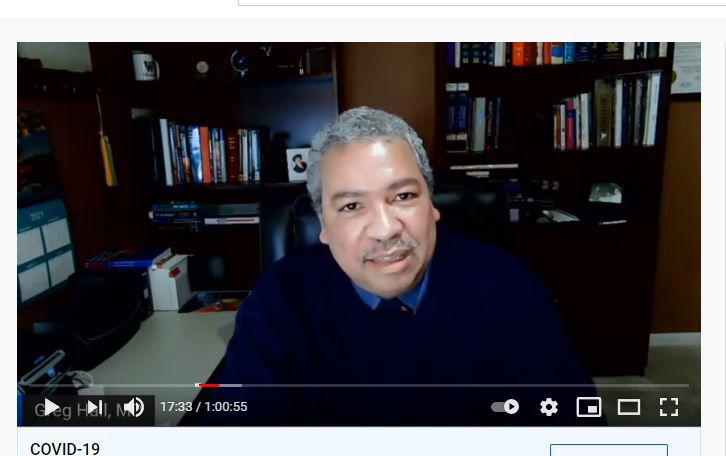CLEVELAND — Cuyahoga County Executive Armond Budish has issued executive orders that take aim at systemic racial disparities, which he says could be influencing African Americans' rejection of the COVID-19 vaccine.
During the county’s weekly COVID-19 video address, Budish outlined orders that were crafted to help correct a realm of racial disparities revealed in two recent Cuyahoga County studies.
He also implored residents to take the vaccine, acknowledging that African Americans have a historical basis for their mistrust, which dovetails with the report’s findings.
“I understand that there's a long history of racism from the medical establishment towards African Americans,” he said. “In fact, it's part of our declaration of racism as a public health crisis, that racism has led to worse health outcomes for Black residents.”
Even so, he said the number of residents rejecting the vaccine is alarming.
“We're seeing in some cases, as many as 70 or 80% of people who are offered the vaccine saying they don't want it, and that includes people in nursing homes,” Budish said. “Those numbers have to be reversed. If we're going to get back to normal, we need most people to get the vaccine not reject it.”
To further encourage residents to take the vaccine, Dr. Greg Hall, president of Cuyahoga County Board of Health, shared a story about his personal, tough battle with COVID-19 late last year.

Hall, who is African American, spent several days in the hospital followed by days in the intensive care unit, where many of his fellow patients died, he said.
“I wondered whether I was going to make it, to be honest with you,’ Hall said, visibly breathless in the video. “To tell you the truth, I may end up being on oxygen the rest of my life. It’s important to know that you don’t want to submit yourself to this virus.”
Hall said he got the vaccine two weeks ago.
“I’m being doubly sure I don’t get this again,” he said. “It’s astonishing to me, the way I feel right now, even not fully recovered from something I got before Thanksgiving, that people would choose to not avoid what I got.”
Budish also outlined the newly signed executive orders, which address issues first uncovered in a 2020 study conducted after Cuyahoga County’s Declaration of Racism as a Public Health Crisis.
They also address preliminary findings issued this week by the Citizens Advisory Council on Equity, which found a significant disparity between the number of minority- and women-owned businesses in Cuyahoga County and businesses awarded county contracts.
“The county spends many millions of dollars in contracted services,” Budish said. “I want to make sure that everyone who's qualified has an opportunity to work with us and to benefit.”
The new orders include working to implement policy changes that can reduce structural and systemic racism and long-standing disparities between Blacks and Whites.
The advisory council is organized into four subcommittees, including health and health care, economic opportunity, equitable quality of life, and criminal justice.
Among the key findings across all subcommittees is the recommendation that all county employees undergo racial equity training, Budish said.
“You can't make real change unless you understand yourself – your reactions and your biases no matter how unconscious those biases might be,” he said.
The council also determined that county leadership is invested in better understanding and solving for racial equity, but it said the county needs to do a better at tracking the impact of its programs and creating metrics around programs and services.
The council’s findings were gleaned through dozens of interviews with county leadership and in-depth reviews of government processes and services, according to a county press release.
The council also researched local and national strategies, initiatives, and models.
The full executive orders are available online.



